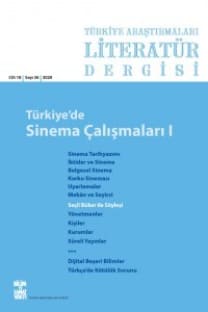Osmanlı’dan Günümüze Kur’an İlimleri / Tefsir Usulü Çalışmaları
Osmanlı döneminden günümüze kadar, “Kur’an İlimleri”, “Tefsir Usulü” gibi başlıklar taşısın ya da taşımasın, Kur’an’a dair temel bilgileri ihtiva eden pek çok eserin kaleme alındığı, kaleme alınmaya da devam ettiği bilinmektedir. Bu eserlerin tanıtımını esas alan bu yazı, evvelemirde, anılan eserlerin özgün yönlerinin tespitini ve alana ne boyutta katkıda bulunduklarının tayinini hedeflemektedir. Zira bu yöndeki tespitler, hem bu eserlerden hangi yönler itibariyle istifade edilebileceğini gözler önüne serecek, hem de alanla ilgili eksiklikleri ve ihtiyaçları gözlemlemek suretiyle daha nitelikli ve yetkin çalışmalara olan ihtiyacı ve talebi dillendirmeye imkân verecektir. Bir alanla ilgili müellefat içerisinde, telif tarzını ve edebi paradigmayı belirleyen kurucu ve öncü metinler bulunduğu gibi özgün şeyler ortaya koyma yönünde bir çabanın ürünü olmakla birlikte bunda pek de başarılı olamayan metinler ile hiçbir özgün yanı bulunmayan ve böyle bir hedefi de istihdaf etmemiş olan sıradan metinler de bulunmaktadır. Kur’an ilimleriyle ilgili metinleri bu yönleriyle tasnife tutmak, en azından öncü ve paradigmatik belirleyiciliğe sahip metinlere işaret etmek bu yazının bir diğer hedefidir. Her bir eserin, satır aralarında, başta ilim telakkisi olmak üzere, vücut bulduğu döneme hükmeden tasavvur ve şartlara dair çok şey söylediği bir gerçektir. Bu yazının, bu nitelikte doğrudan veya dolaylı pek çok tespite tedarikte bulunacak bir malzemeyi tazammun ettiği söylenebilir. Nitekim Osmanlının son dönemlerinden itibaren kaleme alınan eserlerde oryantalistik meydan okumalara cevap verme refleksinin öne çıktığı yönündeki tespit bunlardan biridir.
Anahtar Kelimeler:
Osmanlı Dönemi, Cumhuriyet Dönemi, Kuran İlimleri, Tefsir Usulü.
Works on the Qur’anic Sciences and the Methodology of Tafsir from the Ottoman Empire to the Present
Scholars have written many books containing basic information about the Qur’anic sciences, and the methodology of tafsir ever since the Ottoman period. The aim of this article is to elucidate, first of all, the unique aspects of these works as well as to determine their contribution to the current literature. It will then be possible to provide insights into the ways in which scholars can benefit from the works concerned, and to specify both the weaknesses of the field and the need to carry out qualified research regarding the subjectmatter at hand. Obviously, in every field of inquiry, there are founding works, which set the style, genre, and the literary paradigm. There are also others that are the products of rigorous effort, but are not deemed as valuable. The last category of works concerns those with no unique contribution. By aiming to categorize works on the Qur’anic sciences along these lines and to point at pioneering works in the field, this article hopes to shed light on their distinctive characteristics. Every work tells us something about the dominant intellectual atmosphere and understanding of scholarship of the time in which it came into existence. This article contains plenty of data that would allow the reader, directly or indirectly, to evaluate the relevant literature along the lines stated above. The fact that one can find in books authored from the late Ottoman era, the urgency and the need to respond to the Orientalist challenge is a proof in that direction.
- ISSN: 1303-9369
- Başlangıç: 2003
- Yayıncı: Bilim ve Sanat Vakfı
Sayıdaki Diğer Makaleler
Kur’an Araştırmalarına Batılı Yaklaşımlar ve Türkiye’ye Etkileri
Osmanlı’dan Günümüze Kur’an İlimleri / Tefsir Usulü Çalışmaları
Kur’an Araştırmalarına Batılı Yaklaşımlar ve Türkiye’ye Etkileri
Osmanlı’dan Günümüze Kur’an İlimleri / Tefsir Usulü Çalışmaları
Türkçedeki Kur’an Meâllerinin Tarihi ve Kronolojik Bibliyografyası
Cumhuriyet Dönemi Telif Tefsirler
Elmalılı Muhammed Hamdi Yazırın Tefsiri ve Hakkında Yapılmış Çalışmalar Bibliyografyası
Cumhuriyet Dönemi Tefsir Çevirileri
